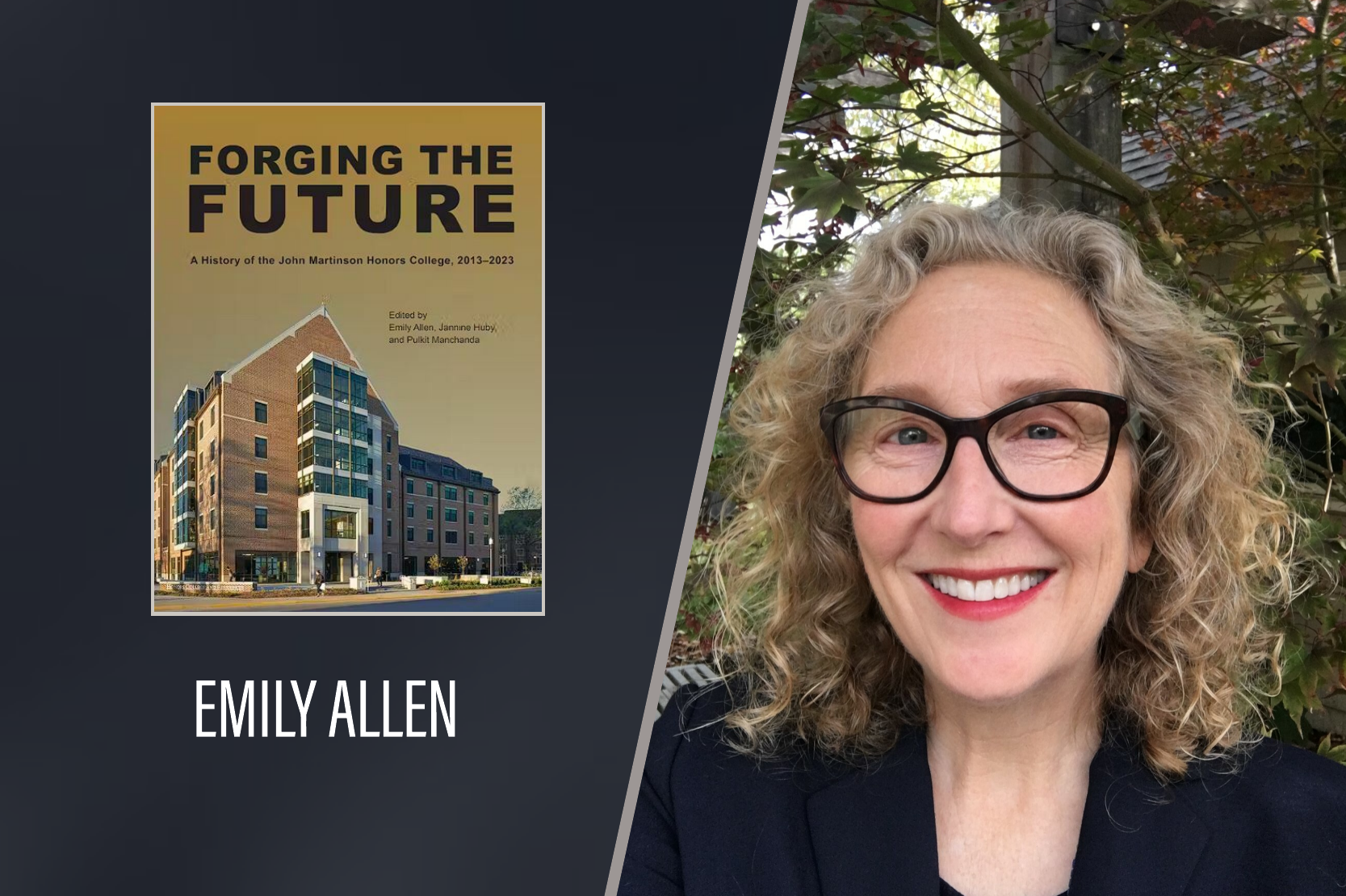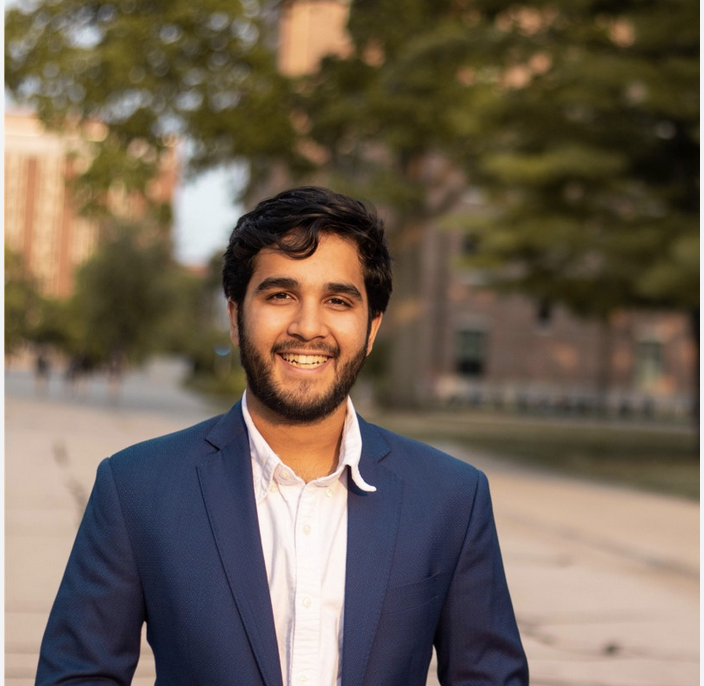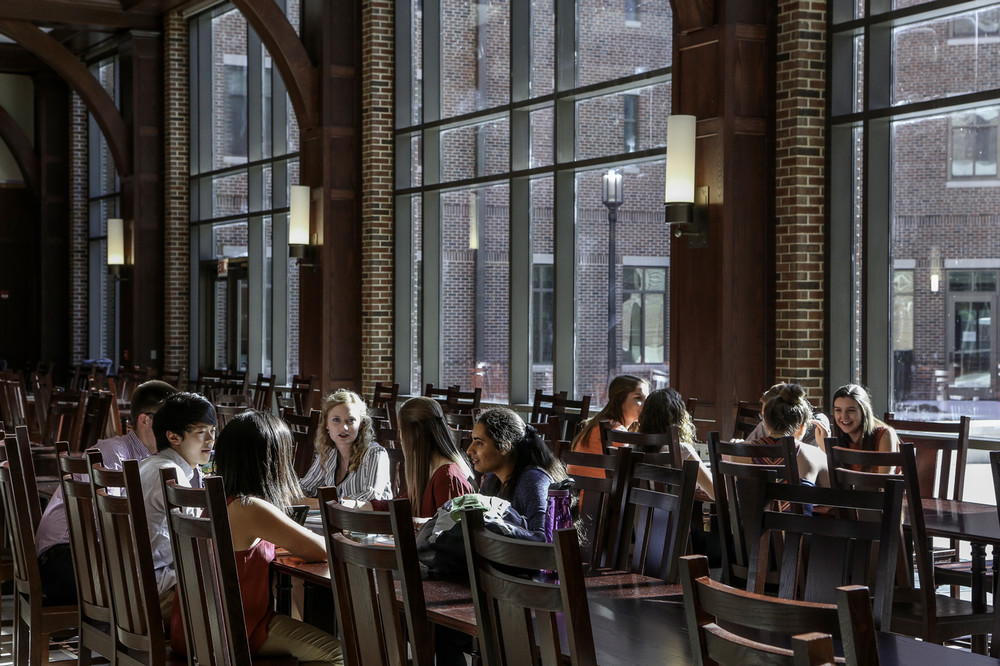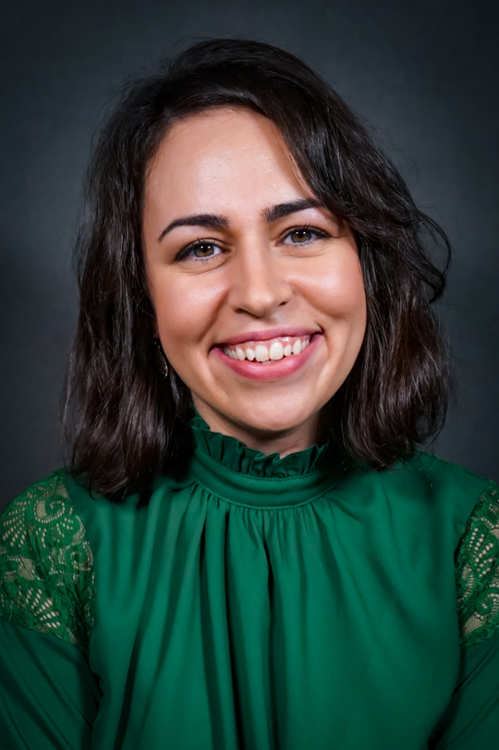In Print: ‘Forging the Future: A History of the John Martinson Honors College, 2013-2023’

Much like the creation of the college that inspired it, a new book about the John Martinson Honors College is a collaborative and interdisciplinary effort.
Forging the Future: A History of the John Martinson Honors College, 2013-2023 recounts the journey of the JMHC from its founding through its first 10 years. The book — researched and written by JMHC students, faculty and alumni — documents the collaborative effort to launch an academic-residential college at Purdue, as well as the founders’ dream of fostering interdisciplinary learning and innovative pedagogy on a national and global scale.
Blending institutional history with personal narratives, JMHC professor Emily Allen and two JMHC student editors worked with a team of 16 student and alumni researchers to produce stories that highlight the impact of hope and imagination over the course of the college’s first transformative decade.
“The John Martinson Honors College is the product of a longer sweep of history — Honors at Purdue — and hundreds of people came together from across the university to imagine an interdisciplinary college that would be a hub for innovation,” said Allen, director of the Blue Sky Teaching and Learning Laboratory in the JMHC. “It was important for us to tell the story of our intellectual connections with the rest of the university, as well as the history of our own unique academic and residential culture.”
The title “Forging the Future” is a nod to the JMHC’s motto "Ignite your Imagination. Forge the Future," coined by the college’s founding members and former Dean Rhonda Phillips. The book covers various aspects of the Honors College, including case studies, spotlights and personal narratives. It also provides information about John Martinson, whose gift supports new programmatic initiatives to promote undergraduate research, scholarship and creative activity, leadership and professional development, global and community engagement and innovative pedagogies.
Pictured: The John Martinson Honors College south building stands against a cloudy sky
Allen says the book project aimed to connect research to residential life and used both archival and autoethnographic approaches. That’s why Allen and her undergraduate co-editors invited past and present Honors College community members to contribute chapters and to work together as a research and writing team.
“What I hoped students would gain from this project is the understanding that history is a living thing; there’s nothing static about it,” Allen shared. “I believe everyone who worked on this project really did have a sense that they weren’t just making the history of the college but had been living it during their time here.”
JMHC alumnus Mark Aronson served as the first Resident Education Assistant for the college and is one of the book’s contributors. He wrote about the early years of the college, reflecting on the changes he witnessed as a student as well as shifts in his understanding of the college since leaving Purdue.
“In my chapter, I talk about the experience of transitioning from the receiver of mentorship to the giver of mentorship,” said Aronson, who recently earned his PhD in biomedical engineering. “When I joined the Honors College as a student, I had a different idea of the mission than what I’ve come to understand over time. I used to think of it as a way of pursuing rigorous academics, doing cool projects and winning prestigious scholarships, but I’ve grown to understand it more as a community where people are giving back and contributing to building up the entire campus together.”
Contributions from undergraduate student co-editors
Pulkit Manchanda’s involvement in “Forge the Future” had a serendipitous beginning. On a whim, he showed up to the first callout for book contributors and ended up having a long conversation with Allen about his experiences as a JMHC student.

Pictured: Co-editor and JMHC alumnus Pulkit Manchanda
Manchanda said that first impromptu meeting resulted in spending his senior year deeply engaged in co-editing the project, even past graduation. Gathering at the Honors College every week for “Writing Wednesdays,” the co-editors and book contributors would discuss various aspects of the project.
“It was a labor of love,” Manchanda said. “People needed to want to be a part of this project. That was essential because otherwise the authenticity and passion that we were trying to convey would not come through.”
Manchanda said the experience of co-editing the book has proven invaluable in his current role working in a newsroom in India, where he navigates the balance between conveying hard facts and maintaining audience engagement. He added that the emotions he felt upon completing the book project mirrored how he felt about graduating from Purdue.
“It was bittersweet,” he said. “The realization that we had just finished telling the story of the last decade brought a sense of pride and also made us look toward the future. Every time I hold the book in my hands I smile because part of it is mine. It’s a shared history, a shared effort.”
Co-editor Jannine Huby gained similar benefits from the project. Now a law school student in North Carolina, she says co-editing the book helped hone her research and writing abilities and also taught her to navigate the synthesis of extensive documents, a skill crucial to her current academic experience.
Looking ahead, Huby sees “Forging the Future” as a living legacy — a testament to the college’s growth and the students who contribute to it. She encourages current JMHC community members to continue the dialogue to ensure the history of the Honors College remains a dynamic and ongoing narrative.
“The book represents a tangible result of a collaborative effort,” she said. “It’s a lot like the college itself in that way. We were trying to figure out how to tell the history, what bits we wanted to emphasize, what parts are critical to the people who have graduated, while also staying true to both the triumphs and the struggles at the same time. Sometimes it’s hard to grow, but the college did anyway. Just like this book, it didn’t just pop into existence. Things had to be written, restructured and developed. It all becomes part of the story.”

Pictured: Honors College students sit together at tables throughout Honors Hall
The book is available for free pdf download on the Purdue University Press website. On Purdue Day of Giving, Thursday, April 24, individuals who make at least a $100 donation to the JMHC scholarship fund will receive a complimentary hardcover copy of the book.
Join us for an open house on April 12 to help celebrate the 10th Anniversary of the John Martinson Honors College
From innovative courses, undergraduate research and unforgettable campus and study-away experiences — from nurturing future leaders to forging lasting connections, the past 10 years have been nothing short of extraordinary. Join us April 12 for an open house that will highlight Honors College achievements, honor its history and look ahead to the boundless possibilities the future holds.

Andrea Mattingly
Communication Director for Teaching and Learning, thomas78@purdue.edu